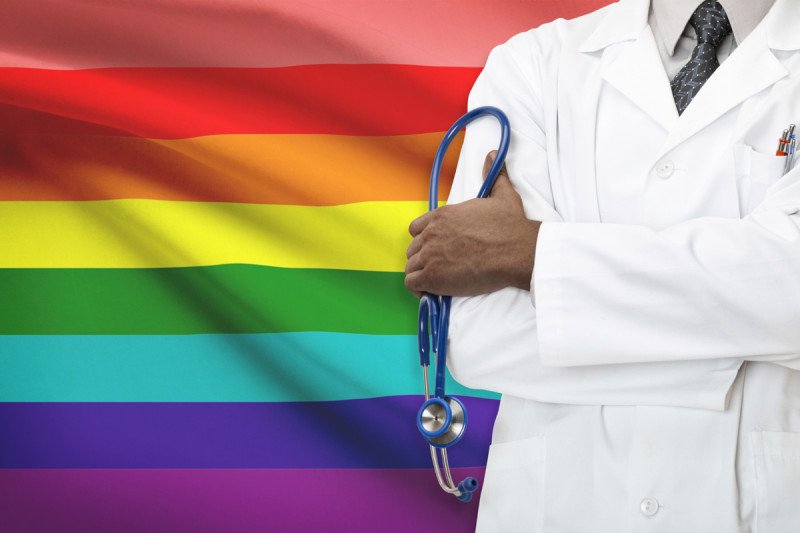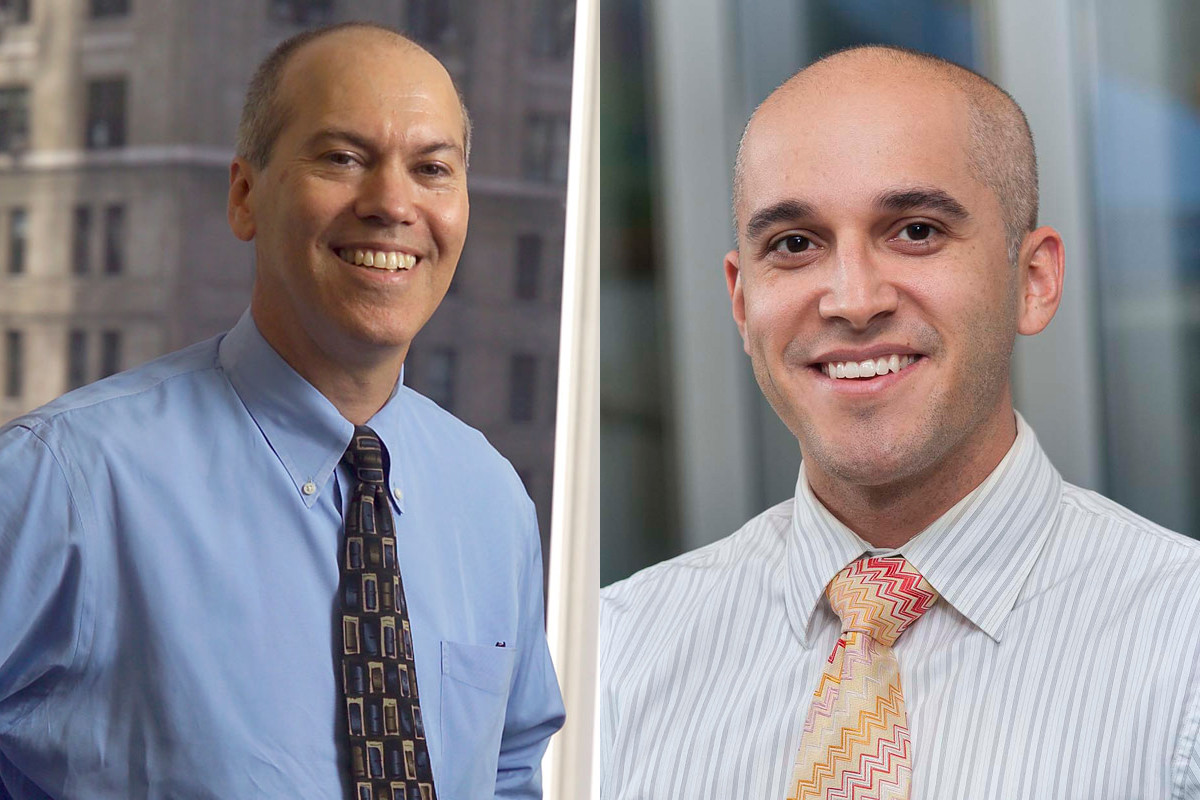
Despite the prevalence of risk factors for cancer in the LGBT community, not much is known about cancer rates in this population. MSK doctors, nurses, and patients want to change that.
Cancer can strike anyone, but some groups of people have higher risks than others.
A new white paper authored by a coalition of scientists and activists calls for policy changes to address cancer risks among lesbian, gay, bisexual, and transgender (LGBT) individuals. It recommends that all national health surveys include sexual orientation and gender identity questions to help establish the extent of the burden of cancer in this community.
Published in the journal LGBT Health, the white paper presents findings and recommendations that emerged out of a two-day cancer summit held at Memorial Sloan Kettering in January 2014 that was a joint collaboration between MSK, the National LGBT Cancer Network, and Callen-Lorde Community Health Center, in New York City.
The first of its kind, the summit brought together 56 experts in LGBT cancer care and research as well as LGBT cancer survivors and activists to formulate a national “action plan” related to cancer in the LGBT community. After years of careful work, the action plan is now in hand. The plan’s authors hope it will lead to concrete changes in health policy and healthcare for LGBT individuals and their families.
A Gap in Knowledge
Much of what we know about cancer incidence and mortality in the United States comes from data collected by the National Cancer Institute through its Surveillance, Epidemiology, and End Results (SEER) program. Health policy makers use SEER data to identify and address disparities in cancer risk — for instance, among different ethnic, geographic, or socioeconomic groups. Yet SEER does not collect information on LGBT status, which means that many basic questions about cancer in the LGBT community have no clear answers.
“There is a huge gap in our knowledge when it comes to understanding cancer rates in the LGBT community,” says Jack Burkhalter, a clinical psychologist at MSK and a lead author of the new white paper. “The gold standard would be to get population-based data through the SEER cancer registry, but those data do not currently exist.”
Without this information, Dr. Burkhalter says, it is difficult for policy makers to formulate wise strategies to address the health needs of LGBT people. Further, it creates a kind of catch-22, in which the lack of data leads to continued inaction, since SEER data are often the starting point for efforts to address health disparities.
Other governmental health surveys, including ones administered by the Centers for Disease Control and Prevention, also omit questions about LGBT status.
Disparities in Risk

MSK clinical psychologist Jack Burkhalter and urgent-care physician Nelson Sanchez
The lack of standardized and comprehensive health data for LGBT people is troubling, says Dr. Burkhalter, because numerous studies have shown that LGBT people have lifestyle or behavioral factors that put them at increased risk for certain cancers — for example, higher smoking rates.
“We know that the prevalence of smoking in the LGBT population is much higher than in the general population,” he says. “We also know that there are some 12 to 15 cancers that are tobacco related.”
One study found that 31% of lesbians in Arizona smoked — about twice the rate of the general female population.
As for why more LGBT people smoke, Dr. Burkhalter says it’s likely a combination of factors — beginning with the fact that, historically, bars were a safe haven for the LGBT community and smoking was quite prevalent in bars until recently. Stress related to discrimination or stigma may also be a factor, he notes, as well as targeted marketing by the tobacco industry.
There are other risk factors as well. “Some evidence suggests that gay men — or men who have sex with men — are more likely to develop anal cancer,” says Nelson Sanchez, an urgent-care physician at MSK and a coauthor of the white paper. “That’s probably because HIV rates within the community are higher, and having a suppressed immune system increases the odds of someone developing anal cancer.” Anal cancer is caused by infection with the human papillomavirus (HPV).
Some evidence suggests that lesbian women, who are less likely to have children of their own and who have higher rates of obesity, may be at increased risk of breast cancer — though again, the population-level data to back this up are lacking.
Culturally Competent Care
Compounding the problems related to lack of data is inadequate training of healthcare providers in issues related to LGBT health. As the white paper points out, the average time US medical schools spend covering LGBT issues is about five hours, with little to no coverage of transgender-related health issues. Nearly 7% of schools provide no LGBT training at all.
This lack of training can lead to cultural insensitivity on the part of healthcare workers who deal with LGBT people. For example, health experts agree that transgender men should be offered screening for cervical cancer, and transgender women aged 50 years or older should be offered screening for prostate cancer. But, says Dr. Burkhalter, “few providers know of these needs or how to offer them in a culturally sensitive way.”
Culturally insensitive care may be one reason why LGBT people make use of preventive health services, such as cancer screenings, at lower rates than other groups.
Change Starts at Home
The authors of the new white paper hope it will draw attention to the issue of cancer risk in the LGBT community and catalyze changes across the medical field, from national policy and research down to individual patient care.
Moving the needle on SEER represents a particularly important goal. “That would be a great step forward in tracking health disparities,” Dr. Sanchez says.
Achieving that policy goal will take the cooperation and coordination of local hospitals — including MSK — to begin collecting LGBT health information in their medical records systems, since that’s one major place where SEER gets its data.
“If hospitals aren’t collecting sexual orientation and gender identity information in a standard way,” notes Dr. Burkhalter, “then they can’t provide the data.”
Though there are potential challenges involving patient privacy, research indicates that — when treated with care and sensitivity — patients of all backgrounds find questions pertaining to sexuality and gender identity acceptable in clinical encounters, and health institutions that have begun to collect such data have done so without incident, Dr. Burkhalter says.
Discussions are currently under way at MSK about making data-collection methods more inclusive.

